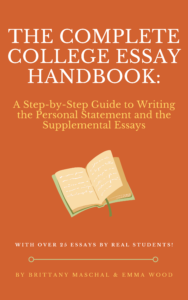Every year we work with a handful of deferred students on turning those defers into admits. Reach out to us if you want individualized guidance!
Some colleges and universities can’t admit all of the students they would like to in early decision or early action (“ED” or “EA”), so they defer some and evaluate them again during regular decision (“RD”). These candidates have a shot (albeit small at many top 30 schools) at getting admitted RD. However, some schools just defer everyone or almost everyone! Most students who fall into this category should move on and focus on other schools. If you are not sure which category you fall into, ask us.
If you’d like some general guidance on working the deferral, you’ll find it below. But first, a few notes before doing anything to “work” a deferral:
1. Stay positive for RD, or preferably early decision 2, and keep moving forward on other apps! Those are much more important now.
2. Consider ED 2; it’s often smarter than relying on RD. Not all schools have ED 2; check your Common App to see if ED 2 is offered at any schools on your list. Why? Because….
3. The RD round is tough. Get familiar with the ED 1 and RD numbers and understand why ED 2 can present a significant advantage over RD. Read this chart by Jeff Levy and Jeannie Kent. Pay particular attention to the percentage of the class filled by early plans.
4. Don’t rush to write to the school without a strategic DEFERRAL PLAN/STRATEGY! Don’t make the same mistakes again. You should be very open to completing a thorough evaluation of what might have gone wrong with your early app(s). With fresh eyes, you might find a few things you would change. Or, with the feedback from someone else, see that you missed the mark completely on some elements of your application. If you’d like an evaluation of your deferred app, our “redo report,” and help to craft a deferral plan and strategy, contact us.
Additional tips to consider as you craft a formal deferral strategy…
–Please follow all deferral instructions. If your defer letter does not provide specific guidance, reach out to your admissions officer/rep and ask them what steps they suggest. Check your portal, too—sometimes deferral guidance is hidden there.
–Get your guidance counselor’s support. Have your guidance counselor advocate for you via telephone. Make sure updated grades/transcripts are sent promptly. Your grades should have remained the same or improved, not dipped.
–If you applied test-optional, consider taking and/or sending scores. Colleges have always valued competitive scores, and this year is no different.
–Get an extra letter of recommendation if the school notes you are allowed to send one*. This letter could be written by a teacher, coach, employer, or someone else who can speak to your background, performance, and potential. *Side note on alumni letters and letters from well-known or famous people. Many students ask if these are helpful to send, and the answer is usually no. And…some schools explicitly state not to send any extra letters.
–Make contacts locally and talk to students and alumni. Reach out to local alumni chapters and ask if there is anyone willing to meet with you for an informal informational interview. Use this meeting as an opportunity to learn more about the school, and demonstrate your interest in attending. Information learned in these meetings can be included in your deferral letter.
-Connect with your regional rep and consider sending a deferral letter (aka an update letter). You should have connected with them prior to applying, so this email won’t be out of the blue. Most schools value an update on grades, test scores, impact/leadership activities, and sometimes more information on why them specifically. A deferral letter should be both intentional and very specific to the school and what was contained within your initial application. It should not be a list of your accomplishments or an essay that re-hashes information already shared in the initial application. You don’t need to label this update a “love letter” or “letter of continued interest”—try to think of a more thought-provoking and less common subject line if you are sending the update via email, or skip it altogether if you are sending a portal update.
-If you had an interview and established a good relationship with your interviewer, you can also reach out to them to see if they have any tips.
*Stay in the know! Subscribe*









